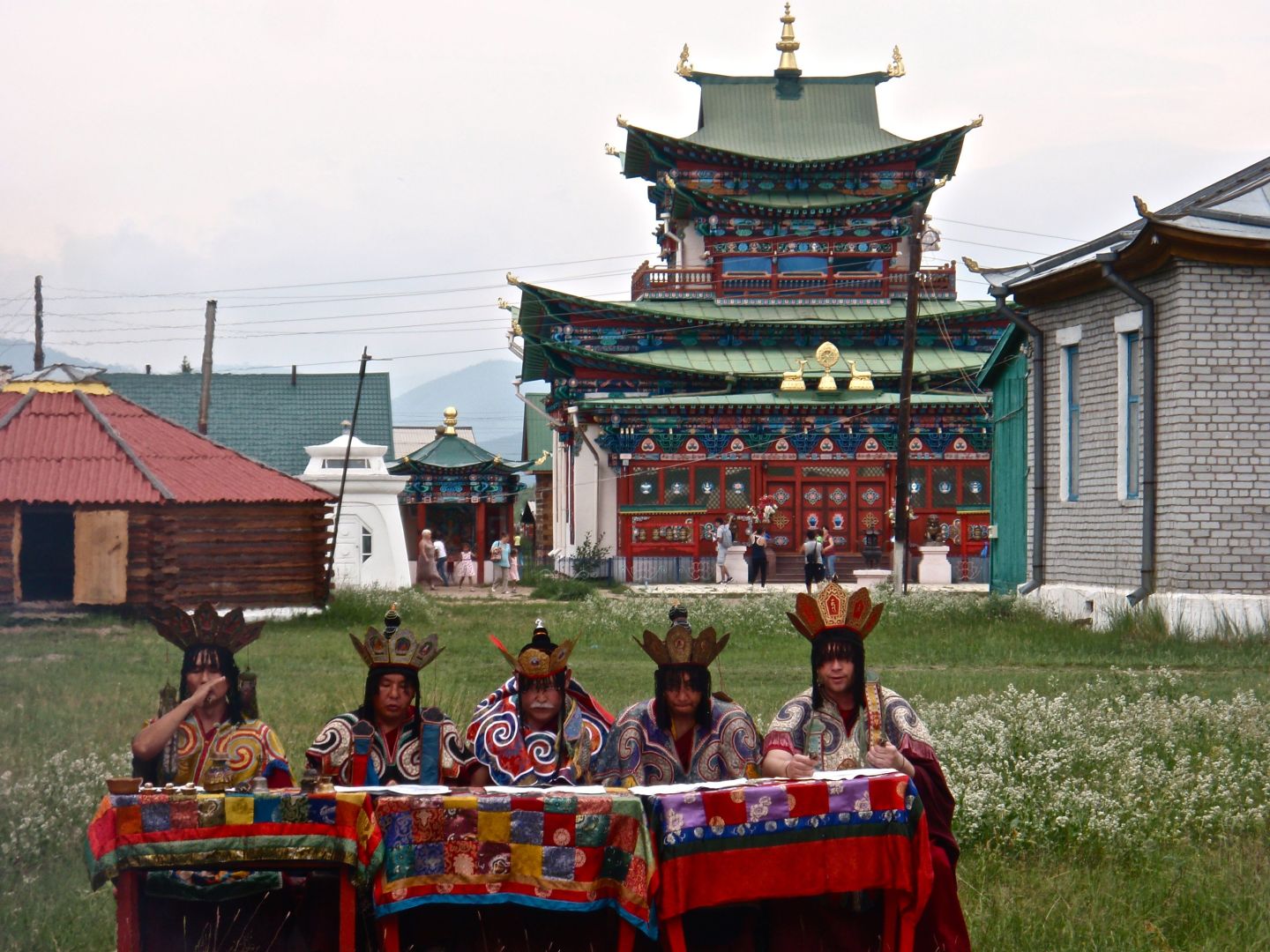 A warm breeze ruffles sun dresses and flips the corners of cloth chess boards on benches and tables scattered around the fountain. Tchaikovsky blares on battered loud speakers above, while the afternoon shadow of the State Ballet creeps over the square. Lenin’s head glowers across the way, his 5,000 pound steel mustache jutting and razor sharp. Summer has come to Ulan Ude, the capital of the Republic of Buryatia, and the streets are thronged with Buryats and ethnic Russians enjoying the brief respite from the nine month chill of Siberian winter.
A warm breeze ruffles sun dresses and flips the corners of cloth chess boards on benches and tables scattered around the fountain. Tchaikovsky blares on battered loud speakers above, while the afternoon shadow of the State Ballet creeps over the square. Lenin’s head glowers across the way, his 5,000 pound steel mustache jutting and razor sharp. Summer has come to Ulan Ude, the capital of the Republic of Buryatia, and the streets are thronged with Buryats and ethnic Russians enjoying the brief respite from the nine month chill of Siberian winter.
We arrived last night to the sounds and lights of a real city, the first and last on this journey. The briefest of comments threw the tiller over: one, from shy Peace Corps volunteers in Sukhbaatar mentioning rashes from the polluted waters of the Orkhon, which joined the Selenga in town, spoiling our pristine river. Two, an invitation from Natasha, clothes smuggler extrordinaire, to attend a rare festival at the epicenter of Russian Buddhism, the Involgka Datsan.
So we abandoned the river for a bumpy, death-wish marshukta to Ulan Ude, and a chance to see the famous (in Buryatia) 12th Khumba Lama, a man who announced his own death in 1927 and meditated his way into the great beyond. Thirty years later, he was secretly exhumed and exhibited no signs of decay. Today, the Khumba Lumba Festival is your only chance to see him, eyes closed, in the lotus position, apparently untouched by corruption and still warm. The Dalai Lama claims he is still alive, meditating and waiting for the right moment to return.
The monastery sprawls, alternating log cabins adorned with time worn turquoise window trim and towering Tibetan style Buddhist temples, scattering vivid color into the muted mixed steppe forest of southern Siberia. Thousands gather and stream clockwise, while outside cotton candy is spun and Buryat wrestlers march round a rough milled wooden stadium while the Soviet Internationale crackles on bleached loudspeakers. A brooding thunderstorm on distant mountains mixes with chanted mantras and cymbols, adding to the surreality.
A good meal, groceries, and laundry complete the day and balance in the mundane. Tomorrow we return to the Selenga, now a mile wide, and charge north to Baikal.



